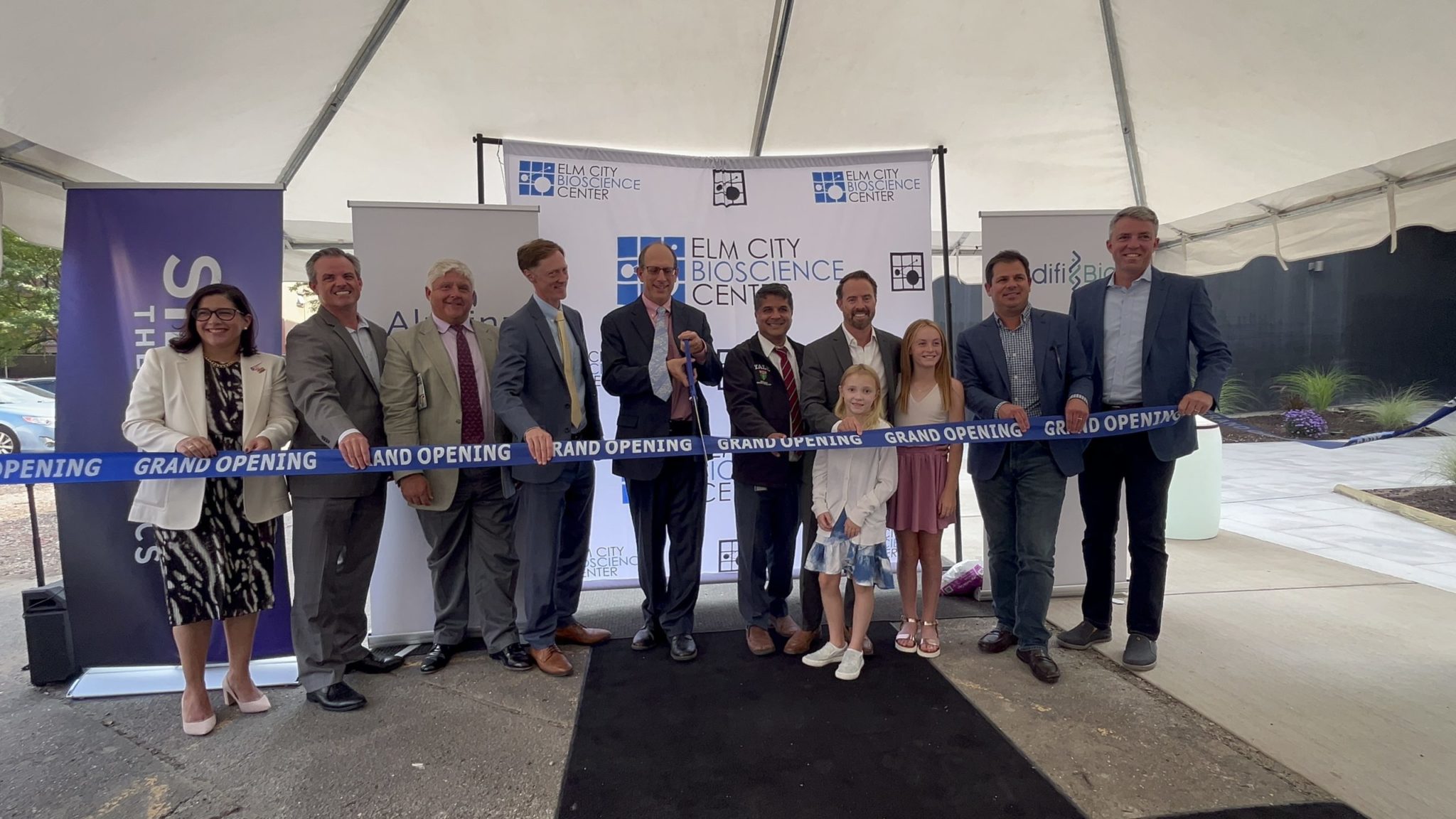New bioscience center opens downtown
Biotechnology development and innovation are taking place in New Haven with a focus on developing novel treatments for cancer patients.

Abel Geleta, Contributing Photographer
New Haven is adding one more building to its quest towards becoming a true biotechnology hub.
The Elm City Bioscience Center will now house three bioscience companies in new state-of-the-art facilities that officials hope will meet what they say is growing demand for lab space. Located at 55 Church St., the eight-story building joins a host of similar planned facilities in the downtown area that have sprung up in recent years.
A ribbon-cutting event on Sept. 14 brought together community members, scientists and investors dedicated to developing biotechnological drugs and breakthroughs for cancer patients. The biotech organizations — Modifi Biosciences, Siduma Therapeutics and Alphina Therapeutics — are focused on harnessing cutting-edge science and new discoveries to develop clinical treatments for the most aggressive and fatal illnesses.
“Cancer though, I will tell you today, is a solvable problem,” said Ranjit Bindra, a physician-scientist at Yale School of Medicine. “We can actually figure this out, but it takes these buildings, these people, leadership and people like all of you here today to make this possible.”
The opening of this building comes during a time when New Haven is committing greater efforts to expanding its biotech industry. Many officials believe that the bioscience industry has huge growth potential and could become a crucial part of the city’s economy.
Alexion Pharmaceuticals, which was founded in New Haven, focuses on developing drugs for treating rare diseases and is seen as an anchor point for a potential hub. The biotechnology company Arvinas has also signed a 10-year lease to occupy space in the tower, while the software imaging company Invicro occupies one floor of the building.
There have been speed bumps – in a surprise move, Alexion relocated its headquarters from New Haven to Boston in 2018 and was forced to return millions it had received in state aid. Its research operations remained in New Haven at 100 College Street, and the company is planning to expand into a second tower across the street at 101 College, though no specific details have been released about what additional jobs are going to be offered.
Yale, too, is contributing to these developments geared towards biotech expansion. The University signed a lease for approximately half of the space in the Alexion tower and is financially backing an on-site biotech incubator there.
Bindra highlighted the slow-progression of drug development for cancer patients and his experience with caring for his father when he had cancer, recounting his father’s wish for more advanced cancer drugs to be developed at a faster rate. That propelled Bindra into biotechnology, he said, as a field that could “accelerate something at the speed of light.”
Mayor Justin Elicker praised the new center’s opening and highlighted the work of David Goldbum, whose real estate firm The Hurley Group managed the renovation and development of the space.
Goldbum, principal and chief executive officer of The Hurley Group, was honored for his hard work in establishing this space for the advancement of science and New Haven’s economic development.
“The type of person [David is] is something we all aspire to be,” said Elicker. “[He] live[s] [his] life with [his] personal actions but also with a goal to maximize [his] impact.”
Elicker highlighted the Elm City Bioscience center’s contributions to economic and employment growth as well as its invaluable health benefits for the New Haven community and abroad. As someone who “prioritize[s] growth and inclusive growth,” Elicker appeared enthusiastic about the investments in medical research and the New Haven community, along with the growth possibilities following the opening of the Elm City Bioscience Center.
Paul Lafferty, a father whose child was diagnosed with cancer, attended this event as a patient advocate and to highlight how his family has benefited from these scientific discoveries to obtain regression in cancerous tumors.
“Cancer is scary [and] brain tumors are terrifying,” Lafferty said. “They are in the most precious part of our body — hard to remove and hard to get medicine to and sometimes they can be very aggressive.”
Lafferty exemplified his greatest appreciation for oncologists at Yale who have been instrumental in assisting his family face this battle against cancer.
In recognizing the privilege and opportunity afforded to Avery, Lafferty’s daughter, to receive specialized treatment and participate in clinical trials for some of the drugs these companies are in the process of developing, Lafferty noted that not every patient has the same medical access.
“The hard part is not all patients are as lucky as Avery,” Lafferty said. They don’t have time for long big-pharma development cycles. They need innovative approaches to solve these problems. They need development timelines measured in months, not years.”
Alexion Pharmaceuticals was founded in 1992.







